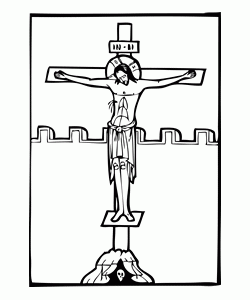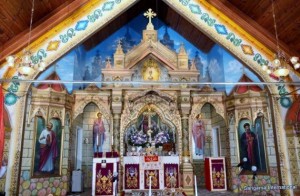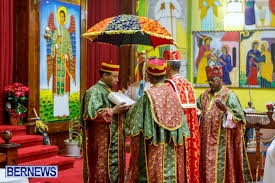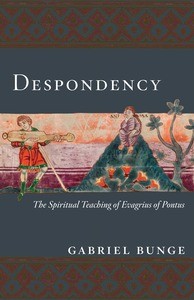 During the week of May 24, the Church commemorates two women who had reason to know about despondency.
During the week of May 24, the Church commemorates two women who had reason to know about despondency.
Saint Theodosia (May 29) is known for courageously approaching and standing with a large group of bound Christian prisoners. She encouraged them and kept them from falling into despondency as their martyrdom became imminent. Her own martyrdom followed, and she faced it with courage and good cheer.
Saint Macrina the Elder (May 30) was the grandmother of Saint Basil the Great. She lived during the persecutions of the emperor Diocletian. To avoid imprisonment and to protect their family from suffering on their behalf because they were prominent Christians, she and her husband Basil “disappeared.” They spent years hiding in a forest, while everything they had owned was confiscated and despoiled. A life so different from the norm, and in isolation from her children and relatives, could easily have led to despondency. Yet Macrina and Basil died peacefully and grateful to God for the blessing of life.
“Despondency: The Spiritual Teaching of Evagrius Ponticus on Acedia” by Gabriel Bunge (St. Vladimir’s Seminary Press, 2013) acknowledges that Christians, like everyone else, and whether lay or monastic, can be tempted by acedia, which the author translates as “despondency.” The book is a collection of, and reflections on the subject in the writings of Evagrius Ponticus, who lived in the fourth century.
One of the ways we become despondent, Evagrius writes, is by letting Satan stir up in us dissatisfaction with the place we’re in and the thing we’re doing. He gives an example that sounds painfully contemporary:
“If the despondent one reads, then he yawns a great deal…he rubs his eyes, and stretches out his hands, and while his eyes wander from the book, he stares at the wall, then he turns away again, and reads a little, and when he leafs through the book…he counts the pages, and determines the number of sheets, finds fault with the writing and design, and in the end he snaps the book shut.”
Everyone, Evagrius notes, is assaulted by harmful thoughts, and their source is always love of self, which may take the forms of gluttony, avarice or vainglory. But even though these thoughts disturb the soul, we can refuse to consent to them.
The remedy to self-love is real love, Evagrius writes. That love can be expressed in work, because the devil loves idleness. Prayerful tears, as an expression of one’s hard-heartedness and the need for God’s salvation, are another remedy. So is a brief prayer, said consistently, as a kind of counter-statement to the devil’s promptings.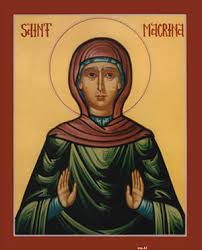
Gabriel Bunge writes, “…the specific remedies which Evagrius prescribes are reduced basically to one: sheer persevering!” This is a conscious waiting for God, in inner silence and without distractions. It is not easy to reach that level of patient waiting, but it leads to our becoming like the Prodigal Son “on the way to his father, who then meets him, not in the father’s house, but beyond expectation, while he is still on the way.”
Photo Gallery
-
Posts Archive
-
Links

